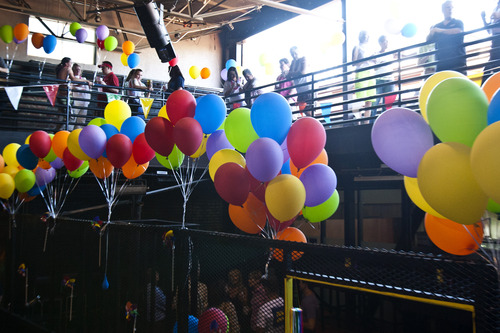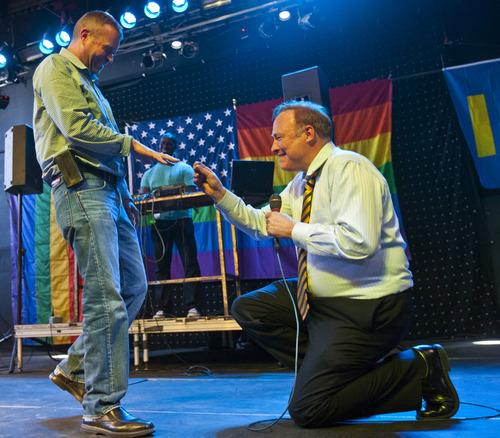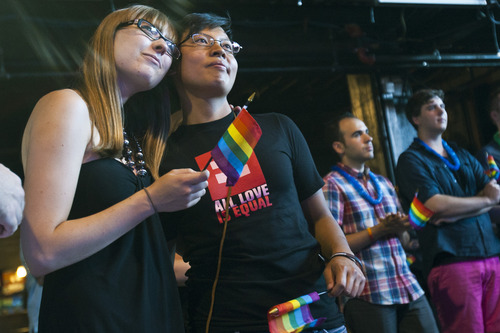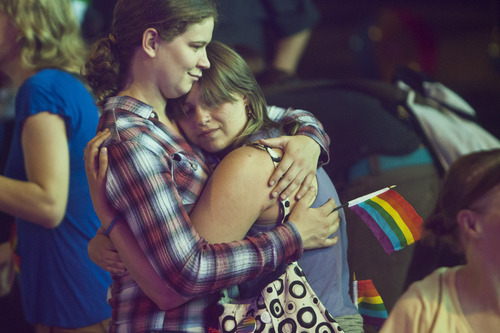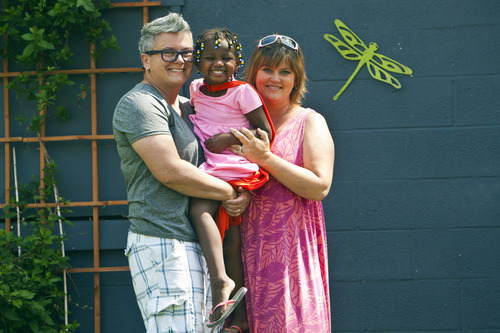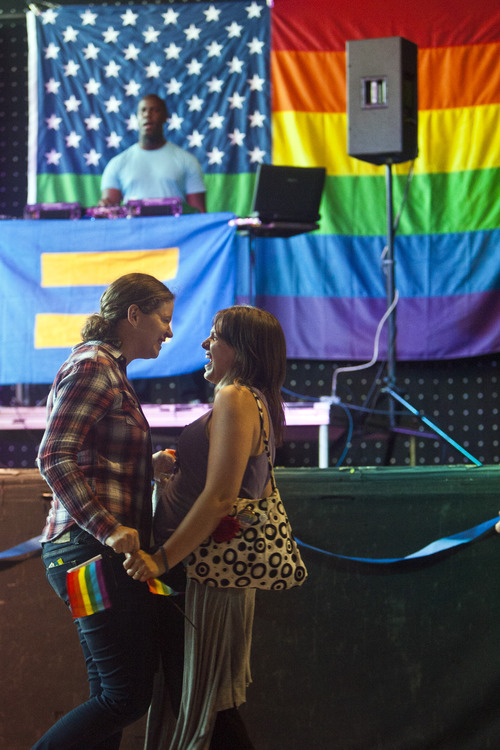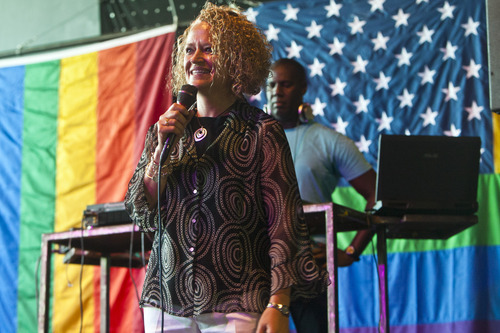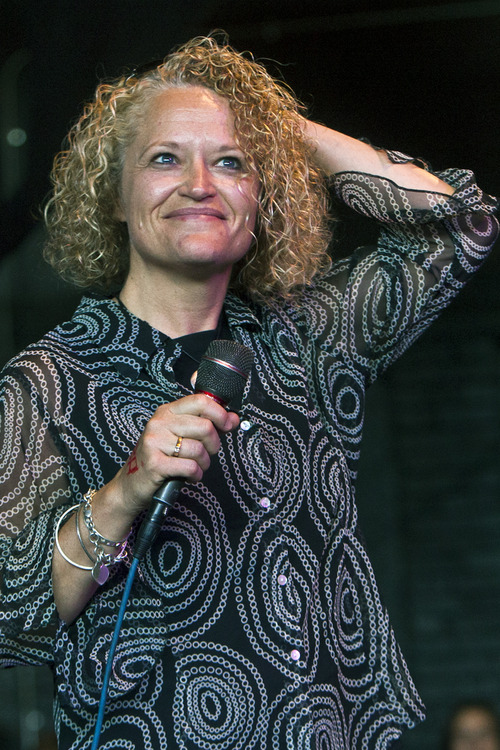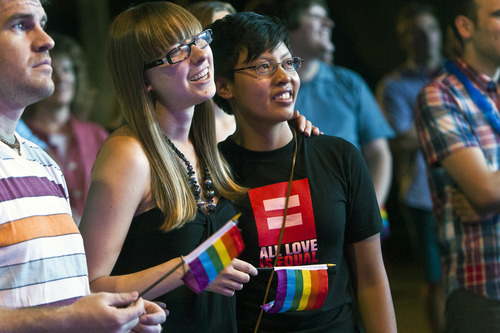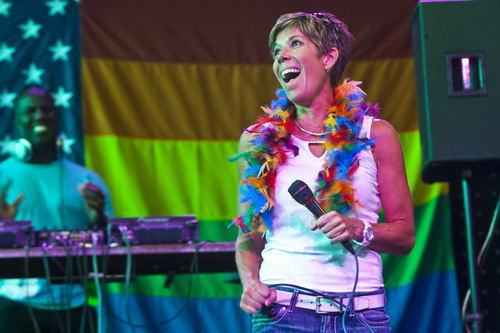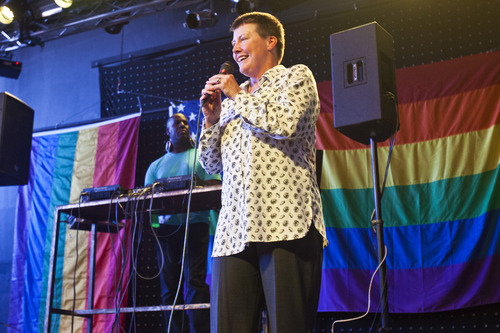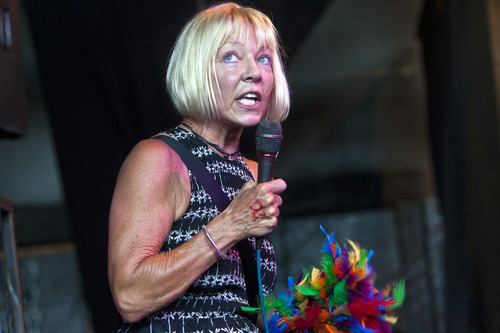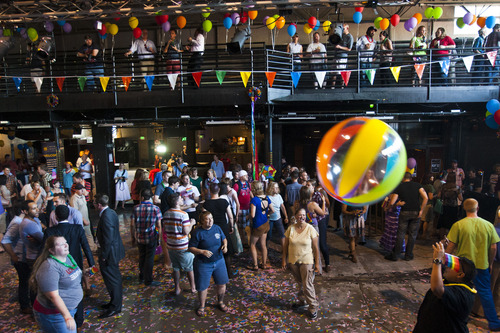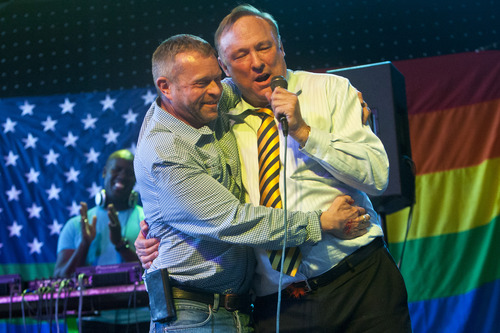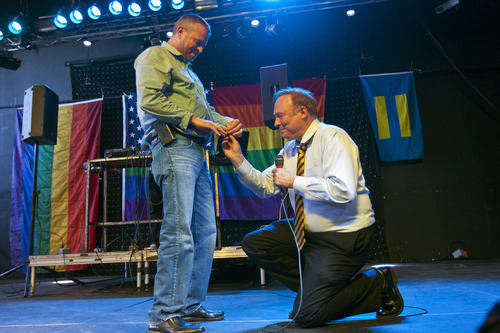This is an archived article that was published on sltrib.com in 2013, and information in the article may be outdated. It is provided only for personal research purposes and may not be reprinted.
Utahn Keri Jones — who married her partner, Cristy Gleave, in California — is thrilled by the Supreme Court's decision Wednesday striking down the Defense of Marriage Act.
By denying federal benefits to legally married same-sex couples, the act violates the equal-liberty protections of the Fifth Amendment, the court said in its 5-4 ruling.
"I imagine this is going to be a beautiful year," Jones said. But she predicted, "There will not be marriage equality in Utah" unless the federal government eventually requires states to allow same-sex marriages.
The Supreme Court also ruled that opponents of same-sex marriage in California did not have the legal right to defend Proposition 8, which says marriage is a between a man and a woman. Golden State voters passed the ban on gay marriage, but federal courts overturned it.
Now, same-sex marriage is expected to be legal again in the nation's most-populous state, a common destination for same-sex Utah couples who want to wed. Salt Lake City residents Michael Picardi and Grady James have been together for seven years and said Wednesday they plan to travel to California in August to marry.
"For generations, history books will look to today's Supreme Court decisions as a pivotal moment in the march for equality in the LGBT [lesbian, gay, bisexual and transgender] movement," Utah Pride Center Executive Director Valerie Larabee said at a morning news conference. "Today we celebrate the firm legal foundation the court has established that will begin to wash away the layers of anti-gay legislation we've seen over the past few decades."
Leading a coalition of more than two dozen LGBT organizations from the nation's most conservative states, the center filed a friend-of-the-court brief outlining the impact of legislation such as Prop 8 and DOMA on gay and transgender Americans.
"We look forward to a day," Larabee said, "when all the anti-gay legislation lies on the trash heap of history."
While the Utah-based Church of Jesus Christ of Latter-day Saints criticized the Prop 8 ruling and reaffirmed its commitment to marriage between a man and a woman, Mormon gay-rights backers trumpeted the court's action.
"We are thrilled that the Supreme Court has agreed with us that all families deserve equal protection under the laws," said Spencer W. Clark, executive director of Mormons for Equality. "These decisions align with our Mormon faith, as recorded in modern scripture, in that we believe it is unjust for a particular set of religious beliefs to be used to deny civil rights to others."
Jackie Biskupski, Utah's first openly gay legislator, said the LGBT community has felt "overwhelmed by what seems like to us is constant oppression."
Biskupski, who left office in 2011, added, "But we are making progress and it's significant, and we are holding hands with our Mormon brothers and sisters here, who are saying enough. This time we recognize the full human equality of all Utahns."
Marian Edmonds, executive director of the Ogden OUTreach Resource Center, sees the DOMA ruling as "another nail in the coffin of homophobia." Thanks to the ruling, she predicted, "we will see increased family support of gay youth and a decrease in LGBT youth suicide and homelessness. The work is not done, but the tide now has turned."
David Nelson, a longtime LGBT advocate in Utah, recalled that "more than 20 years ago, a friend from the [conservative] Utah Eagle Forum, who normally opposed my political opinions, told me that Utah didn't need LGBT-friendly laws because 'the Constitution protects everyone equally.' "
He added: "She was right. Look at what the federal Supreme Court justices said the Constitution means today."
Outside Salt Lake City's Club Sound on Wednesday evening, police officers were attaching parking tickets to some 50 cars for not parallel parking, but inside hundreds celebrated as Whitney Houston sang, "I wanna dance with somebody, with somebody who loves me."
"I'm feeling tremendous," state Sen. Jim Dabakis, D-Salt Lake City, said over the music. So much so that Dabakis brought his partner, Stephen Justesen, to the stage, dropped to one knee and proposed to him. Dabakis said it was a spur-of-the-moment kind of thing and that he had bought the ring that day. The couple still have to decide when and where they're going to be married.
Amid bouncing beach balls on the dance floor, Barbara Rufenacht, who came out 35 years ago, had tears as she explained the day's meaning for her.
"I never thought I'd live to see this day," the 70-year-old said.
rparker@sltrib
Twitter: @rayutah —
Join us for a Trib Talk discussion
Join Trib Talk's Jennifer Napier-Pearce at 11:30 a.m. Thursday as she moderates a discussion about the Supreme Court's historic gay-marriage decisions. The segment will feature University of Utah law professor Clifford Rosky and Brigham Young University law professor Lynn Wardle.
To submit questions or participate in the discussion, use the hashtag Tribtalk on Google+ or Twitter.
Fast facts about LGBT Americans
• Gay and lesbian couples can marry in 12 states (Connecticut, Delaware, Iowa, Maine, Maryland, Massachusetts, Minnesota, New Hampshire, New York, Rhode Island, Washington and Vermont) and Washington, D.C.
• There are about 9 million LGBT people nationwide and more than 900,000 same-sex couples.
• Twenty-two percent of same-sex couples are rearing children, according to the Census Bureau.
• According to a 2013 ABC/Washington Post poll, 58 percent of Americans support the right of same-sex couples to marry.
Source: Human Right Campaign


